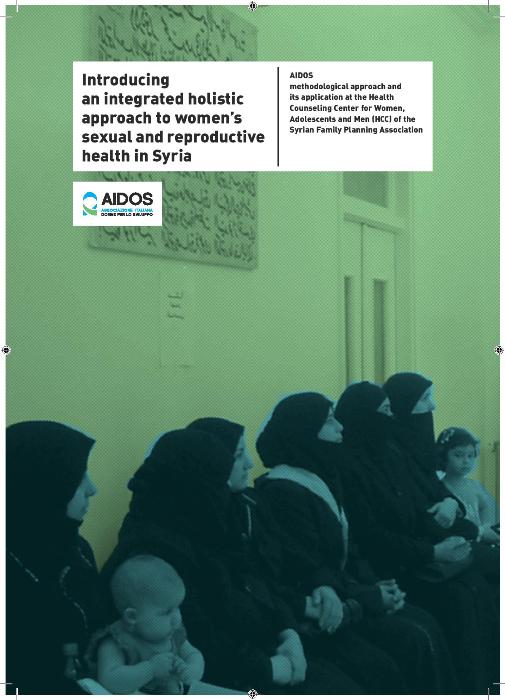2007 Sexual and reproductive health / Violence against women
WHERE
Halbouni, Damascus (Syria)
PARTNER
The Syrian Family Planning Association (SFPA)
BACKGROUND
Syria has a population of about 20 million inhabitants, of which 39.4% are under the age of 15. The demographic growth rate is high: from 3.3% in the eighties to 2.4% in 2007. The fertility rate in 2004 was 3.5 children per woman. Despite the increase in the use of family planning methods deriving from the efforts exerted by the Syrian Government to support this policy, the percentage of women recurring to contraceptive methods is still low. Early marriage is prevalent among poorer segments of the population and the less educated. Women illiteracy accounts for 26% of the population above 15. (UNFPA, State of the World Population, 2007). While gender parity in primary education has nearly been achieved, there are still many areas where girls are more likely to drop out of school than boys. This is due to a prevailing attitude that girls should be brought up to become wives and mothers only and therefore it is not important for them to be educated beyond basic literacy. Cultural and social barriers discourage women from being active in the socio-economic growth of their country. Issues related to sexuality and sexual behaviour are still inefficiently addressed and closely affected by socio-cultural and religious factors. The family context is the one in which the greatest number of violence occurs.
GOALS
The project aims to upgrade one the 19 Clinics of the SFPA into a Health Counselling Center (HCC) through training and introducing new services to respond to an increasing demand for qualified and integrated reproductive health care. It aims at attaining higher standards of physical, psychological and social wellbeing of women, men and adolescents living in Damascus, on the outskirts of the city and in rural areas, by adopting a holistic approach to reproductive health in order to: improve reproductive health; promote responsible family planning; reduce maternal and neonatal mortality; contribute to the reduction of sexually transmitted diseases and HIV / AIDS; raise the awareness of adolescents and young people on reproductive health issues; reduce the incidence of early marriages and pregnancies; prevent and reduce the incidence of gender-based violence. To achieve these goals, the Clinic offers:
- primary gynecological and obstetric care, uterus and breast cancer prevention, pre and postpartum care, family planning counseling and services
- psychological, social and legal counselling
- Men counselling provided by a male socio-psychological counsellor for psychological disorders and family violence
- Youth counselling on sexually transmitted diseases, psychiatric disorders, low self-esteem
- awareness and information programs for men, women and adolescents
- home visits
- prevention and treatment of gender-based violence, screening of all users on GBV and referral service to external or internal specialized structures for the treatment of the case
- production and distribution of informative and educational materials
- on-the-job training for Syrian staff on the management of the Clinic’s services and the use of specialized medical equipment.
BENEFICIAIRES
The HCC targets underprivileged people (women, men, adolescents) living in Damascus and its suburbs.
EXPECTED RESULTS
Every year the Clinic will provide: 6,000 health services, socio-psychological assistance services to 400 women and 250 men and adolescents, legal services to 200 women.
AIDOS ACTIVITIES
AIDOS coordinates the project and is responsible for providing technical and professional advice to the implementing agency; organizes field missions of international experts (administrative experts, gynecologist, midwife, psychologists, economist etc) and on-the-job training activities and is also responsible for the financial management.
PROJECT DURATION
1/05/2007 – 31/01/2012
COST OF THE PROJECT
Yearly Costs: € 95,000.00
WHO IS FINANCING THE PROJECT
The European Union (75%), UNFPA, IPPF, AIDOS, SFPA, Users’ fees.

